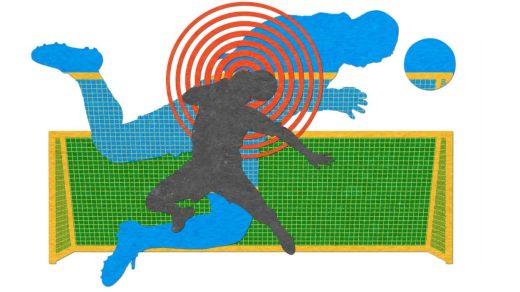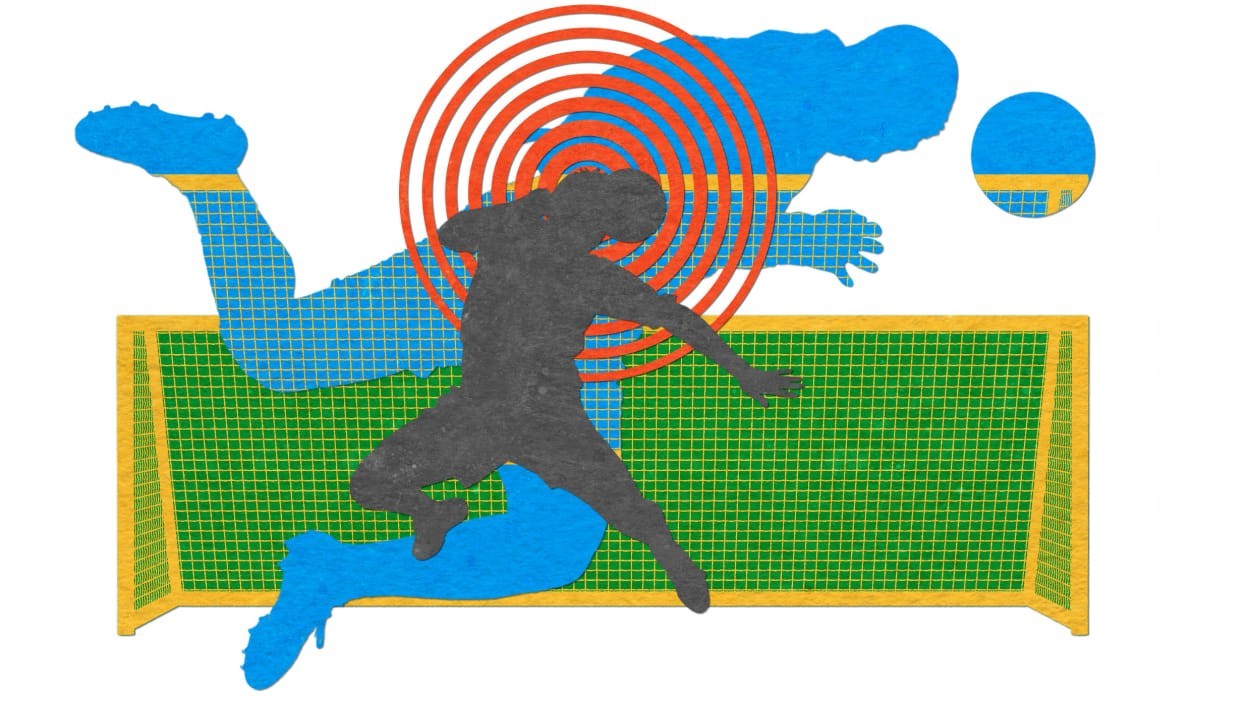Columbia University scientists find that soccer headers diminish brain function over time
Though the sport is known in most of the world as football, some of the best soccer goals of all time have not been scored with the foot but rather the head. Brazilian icon Pelé and FIFA great Zinedine “Zizou” Zidane both scored headers in World Cup finals.
But an increasing body of research suggests that the awe-inducing skill isn’t safe. There is mounting evidence on the risks to brain health caused by heading. A new study that builds on the research is the first to follow players for a multiyear period, and the first to find a measurable decline in the health of brain structure and function among players who frequently perform headers. The data doesn’t prove long-term effects, but the authors express concern that regular heading could lead to degenerative disorders later in life.
Over a two-year period, Columbia University’s radiology lab followed 148 amateur, recreational league players. The cohort comprised both men and women, ages 18 to 40, all of whom played at least twice a week for at least six months of the year.
They were classified into groups who headed the ball the least, those who did so a moderate amount, and those who used the tactic most frequently. Each group was given a series of MRI scans over the period to measure microscopic brain structure, or “basically network wiring in the brain,” says Michael Lipton, a radiology professor who led the research. They also did a series of cognitive tests to measure brain function, including a “shopping list” memorization test that examines learning and memory.
The results were clear. Those who headed the ball the most—roughly 1,400 or more times in two years—showed “pretty clearly significant changes” to brain structure. When it came to brain function, that measure stayed relatively static among frequent headers, while among those who headed less, function actually improved.
Lipton says the gap between changes in brain structure and function makes sense. He would expect an alteration in the brain’s structure to show “before it starts to manifest in people’s daily functioning.” That means people could be going about their everyday lives not necessarily knowing anything is wrong, as they’re not experiencing obvious symptoms like concussions.
“The big question is, is it a precursor for something that might happen in the future?” Lipton asks, careful not to make any explicit links to future neurodegenerative disorders such as dementia and CTE (chronic traumatic encephalopathy), though acknowledging that they are possible. “The changes we see in the brain could certainly be part of an early stage of some component of that disease,” he says.
Concerns over heading have risen in recent years. There have been some high-profile instances of renowned players suffering from long-term brain disorders. At least five members of England’s winning 1966 World Cup squad were later diagnosed with dementia. Another English player, Jeff Astle, died at age 59 of what was diagnosed posthumously as CTE.
In response, some sporting bodies have started to make modest changes. Last year, England’s football association began a trial to stop teaching heading to players younger than 12. Scotland’s association has reduced the number of training sessions that focus on headers to one per week. Lipton suggests that the impacts are probably even more pronounced in professional soccer than amateur leagues, given the higher speed of the ball—between 35 and 50 miles per hour.
In England, heading has been declining naturally in recent years, given the preference for a style of soccer that minimizes aerial crossing. In the Premier League, headers have fallen in frequency from 18.5% of all goals in the 2014-15 season, to 13.6% in the 2019-2020 season. But the tactic is still a huge part of the sport. In just the first two weeks of the Qatar World Cup there were 135 attempts of headed goals, plus hundreds more in the middle of the field.
Critics are increasingly calling on leagues to address the issue. But even if changes are made, there would likely be backlash from supporters who believe it would alter the game detrimentally, similarly to anger expressed by fans over proposed changes in the NFL over concussion concerns.
(36)



